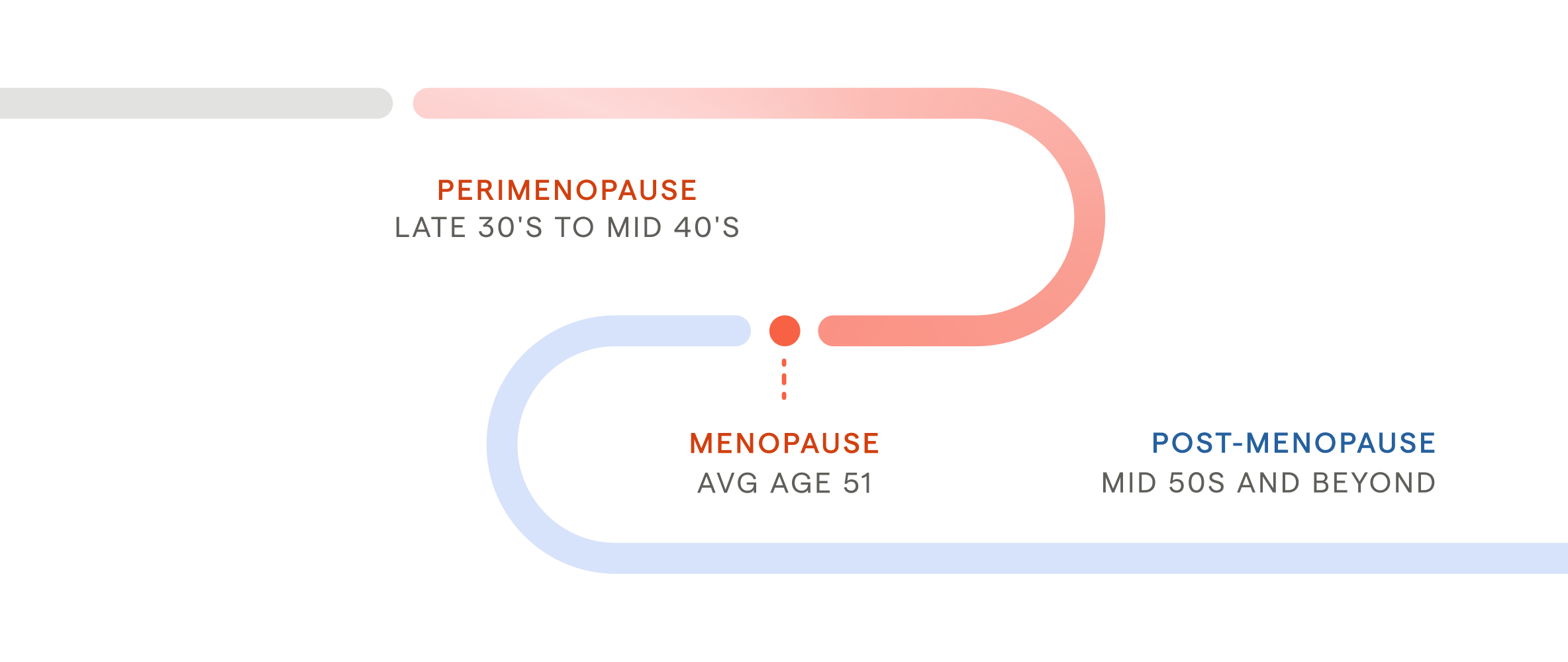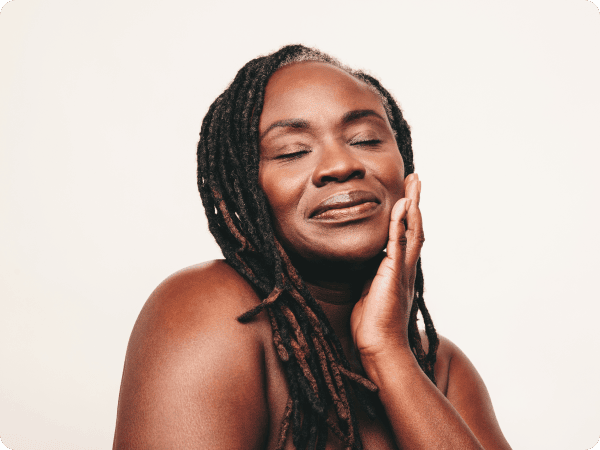For centuries, the menopause transition has been a recognized, albeit less understood, phase in the lives of people assigned female at birth. Documented since the 1500s, this natural transition is far from a modern discovery. Yet, it’s only in recent years that our understanding of menopause has deepened, leading to treatments that promise relief from its often challenging symptoms.
At Felix, we’re at the forefront of translating these insights into practical, supportive treatments designed to ease the menopause journey. A common question we encounter is: “At what age does menopause start?” This article aims to demystify the menopause transition, offering clarity on the stages and age ranges.
At What Age Does Menopause Start?
The exact age when the menopause transition can begin varies from person to person. Menopause is a highly individual experience, influenced by various factors including biology, genetics, health, and lifestyle. To understand this transition, we need to first recognize the three stages of menopause:

Find relief from menopause symptoms
Connect with a nurse practitioner who specializes in menopause treatment. Get personalized care without the waiting room.

Perimenopause
Often starting in the late thirties to mid forties, perimenopause marks the beginning of the menopause transition. For some, this stage can start even earlier and potentially last 3-7 years.
Menopause
Medically speaking, menopause is just one day. It is the day twelve months after the final menstrual period. Typically occurring between ages 50-52, menopause is defined by the complete stopping of menstrual periods.
Postmenopause
This phase following menopause spans the remainder of a woman’s life, which is why it’s so important to transition well. During this time, the focus shifts to reducing risk factors and managing long-term health impacts such as osteoporosis and heart disease to safeguard a quality post-menopausal life.
What is the Earliest Age of Menopause?
There is no one-size-fits-all age for the menopause transition.
Early menopause (before age 45) and premature menopause (before age 40) affect a small percentage of women, highlighting the diverse timing of this transition.
How Do You Know if You’re Starting Early or Premature Menopause?
Abnormal periods coupled with other menopause-related symptoms (like brain fog, hot flashes or night sweats) before 40, can signal the onset of early or premature menopause.
Menopause is primarily diagnosed by symptom review. Blood tests are occasionally used if there is a concern of early or premature menopause but over the age of 45, these blood tests offer little value.
The cause of early or premature menopause often remains unidentified, though factors like family history and certain medical treatments can increase its likelihood.
Consulting with healthcare practitioners at Felix can provide clarity and treatment options to manage symptoms effectively.
Menopause Symptoms by Age
The journey through perimenopause and menopause is unique to each individual, influenced by health, age, biology, genetics, and medical history. Symptoms vary widely throughout the menopause continuum, from irregular periods and mood changes to hot flashes and changes in libido. Recognizing these symptoms as part of the menopause transition is crucial for seeking appropriate care and support.
Late 30’s to Mid 40s (Perimenopause):
At this point, women may experience menopause-related symptoms, such as:
- Irregular periods
- Hot flashes
- Night sweats
- Vaginal dryness
- Changes in libido
- Mood changes
- Sleep disturbances
50-52 (Average Start of Menopause):
At this point:
- Periods will stop
- Vasomotor symptoms (i.e., hot flashes, night sweats, etc.) peak in intensity
Postmenopause and beyond:
Postmenopause brings a shift in focus towards managing the long-term health impacts of menopause, with an emphasis on: bone density, cardiovascular health, and minimizing risks associated with hormone therapies.
This phase requires personalized treatments, reflecting the unique needs of each individual.
When Should I See a Doctor for Menopause Help?
If you’re under 45 and you’re beginning to experience menopause symptoms, or you’re in postmenopause and you’re still experiencing bleeding, you should talk to a healthcare practitioner in person.
Despite how common menopause symptoms are, many suffer in silence. From mild discomfort to more debilitating, these symptoms can greatly impact daily life. Menopause symptom care can vastly improve personal well-being, self connection, relationships and careers.
Our menopause informed healthcare practitioners are always willing to talk about the symptoms you’re experiencing, because we know how challenging they can be.
You don’t have to be alone during this transition. With Felix in your corner, you can take control of your menopause symptoms, so that you can get back to living life on your terms.
While our use of the term ‘women’ when talking about the menopause transition is based on existing scientific research and literature, we recognize this is not inclusive of everyone’s experience. To the transgender men and non-binary folx who will experience menopause, and the transgender women who won’t — know that we see you and are continuing to work toward a way to create space for everyone in this conversation.



